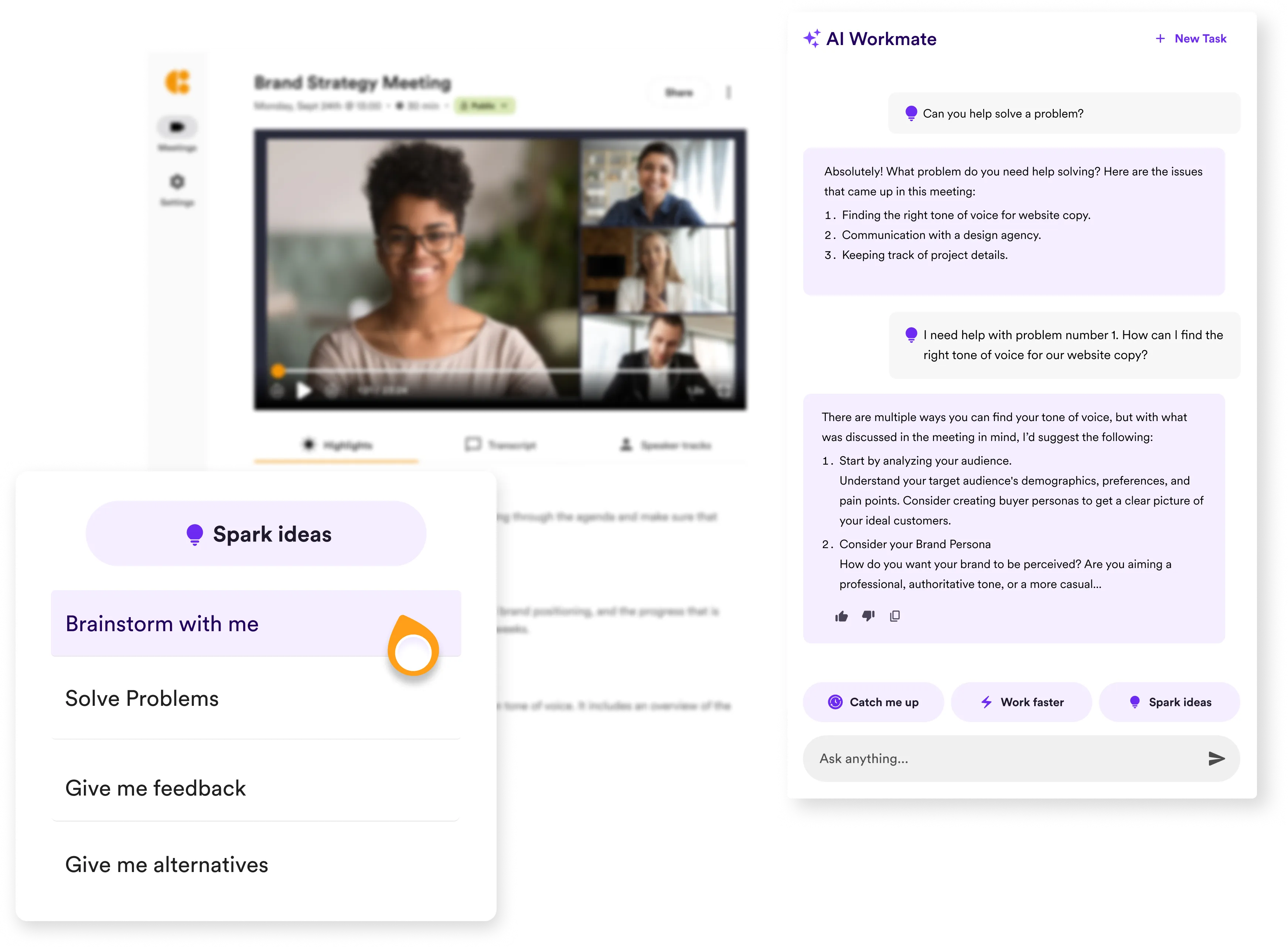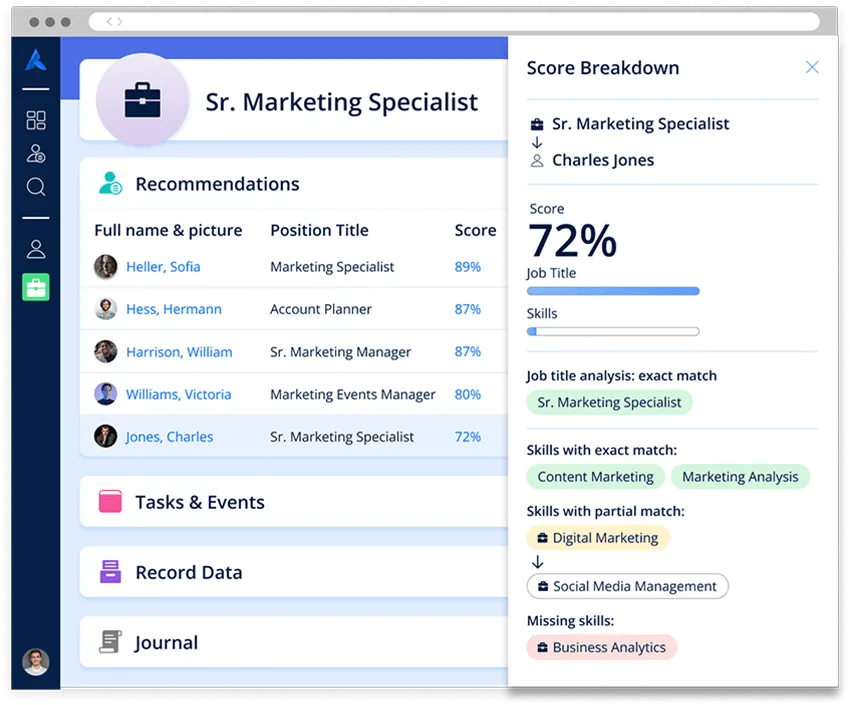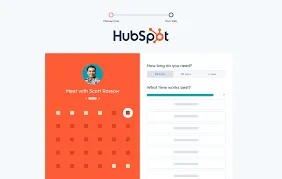How to Make Effective Phone Screenings

Ever found yourself investing hours in interviews only to realize the candidate isn’t a good fit?
This is where phone screenings come in.
In this guide, we’ll walk you through everything you need to know about conducting effective phone screenings.
What Makes Phone Screening Different from Regular Interviews?
Phone screenings are made to quickly determine if the candidate meets the basic requirements for the role.
Unlike regular interviews, phone screenings focus on identifying any immediate disqualifiers and confirming alignment on key points. They help not wasting time with candidates who don't meet basic criteria.
Phone screenings are also the opportunity to confirm logistical details early. You can verify the candidate’s availability, willingness to relocate, and salary expectations to ensure there are no surprises later.
These phone interviews are usually shorter, typically lasting 20 to 30 minutes.
The Steps of a Phone Screening Interview

For a successful phone screening, it's better to have a clear structure to ensure you gather all the necessary information without wasting time :
1. Preparation :
Before making the call, review the candidate's resume and make a list of the key points you want to verify. Identify the main requirements of the role and prepare questions that will help you assess whether the candidate meets those requirements.
Also, have a clear idea of the candidate’s work history so you can ask about any gaps or inconsistencies.
2. Introductions and Setting Expectations :
Begin the call by introducing yourself and your role in the hiring process. Let the candidate know what to expect during the call—how long it will take and the topics you will cover. This helps put the candidate at ease and sets a professional tone for the conversation.
3. Assessing Basic Qualifications :
Start by asking about the candidate’s qualifications. Focus on the core requirements for the role, such as relevant skills, experience, and educational background.
This will help you quickly determine if they have the foundation needed to move forward. Keep your questions direct and targeted—this is not the time for detailed behavioral questions, but rather for confirming the candidate’s suitability on a fundamental level.
4. Evaluating Interest and Availability :
Next, gauge the candidate’s interest in the position and assess logistical details. Ask why they applied for the role and what interests them about your company.
Verify their availability, willingness to relocate if necessary, and salary expectations. These questions ensure there are no deal-breakers that could disqualify them later in the process.
5. Allowing Time for Candidate Questions :
Give the candidate a chance to ask questions about the role or the company. This helps you understand their priorities and level of engagement.
Candidates who ask thoughtful questions are often more serious about the opportunity and have taken the time to prepare.
6. Wrap-Up and Next Steps :
Conclude the call by outlining the next steps in the hiring process.
Let the candidate know when they can expect to hear back from you, and thank them for their time.
Questions to Ask in a Phone Screening Interview

The questions you ask during a phone screening interview should be focused and purposeful :
1. Questions About Basic Qualifications
Start by verifying that the candidate meets the essential qualifications for the role :
- "Can you tell me about your experience with [specific skill or tool] required for this job?"
- "What relevant experience do you have that makes you a good fit for this role?"These questions help you confirm that the candidate has the foundational skills needed for the position.
2. Availability and Logistical Fit
Address logistical questions to ensure there are no major conflicts that would prevent the candidate from being a viable option :
- "When are you available to start?"
- "Are you willing to relocate, if necessary?"
- "What are your salary expectations?"These questions help you identify any potential deal-breakers early in the process.
3. Interest in the Role and Company
Understand why the candidate is interested in the position :
- "Why did you apply for this role?"
- "What interests you about our company?"
- "What do you know about our products or services?"Candidates who have taken the time to research your company and role are more likely to be genuinely interested and a better fit.
4. Clarifying Resume Details
If there are any gaps or inconsistencies in the candidate’s resume, use the phone screening to clarify them :
- "Can you explain this gap in your employment history?"
- "I see you’ve held several short-term positions. Could you tell me more about that?"These questions help you better understand the candidate’s background and assess whether any issues are cause for concern.
5. Cultural Fit and Soft Skills
While phone screenings are not the place for deep behavioral questions, you can still get a sense of cultural fit by asking about work preferences :
- "What type of work environment do you thrive in?"
- "How do you handle tight deadlines?"These questions give you insight into whether the candidate’s work style aligns with your company culture.
Signs a Candidate Deserves to Move to the Next Stage

Here are some key signs that indicate a candidate is ready to proceed:
Clear and Relevant Qualifications
The candidate has demonstrated that they meet the essential qualifications for the role. They provided specific examples of relevant skills and experience that align with what you are looking for. They answered your questions directly and showed that they understand the key requirements of the position.
Genuine Interest in the Role
Candidates who express genuine interest in your company and the role are more likely to be engaged and motivated if they are hired. Look for candidates who can articulate why they are excited about this particular opportunity.
Positive Attitude and Enthusiasm
A positive attitude and enthusiasm can be strong indicators of a candidate’s potential fit. Listen for candidates who speak confidently, show excitement about the role, and demonstrate an eagerness to contribute.
Strong Communication Skills
Since phone screenings rely solely on verbal communication, the way a candidate communicates is an important factor. Candidates who speak clearly, answer questions thoughtfully, and provide relevant details are likely to perform well in more in-depth interviews.
Alignment with Company Culture
While you won’t dive deep into cultural fit during a phone screening, you can still get a sense of whether the candidate’s values and work preferences align with your company. Candidates who describe work environments or team dynamics that match your company’s culture are more likely to thrive if hired.
No Major Red Flags
If there were no significant red flags during the conversation, such as unrealistic salary expectations, unwillingness to meet key requirements, or negative attitudes, the candidate is likely a good prospect.
Automate Your Pre-Screening Process : Noota
.jpeg)
Noota can significantly streamline your pre-screening process :
- Automatic Transcription and Structured Summaries : Noota allows you to automatically transcribe your phone screenings, ensuring that every detail is captured without the need for manual note-taking. This helps you stay fully engaged during the conversation without worrying about missing important points.
- Built-In VoIP for Seamless Calls : With Noota’s built-in VoIP feature, you can call candidates directly from the platform. You have the option to use your own phone number or a number provided by Noota.
- Conversation Analysis : Noota’s conversation analysis feature provides deeper insights into the candidate's communication style and overall suitability for the role. It can identify patterns in the conversation, such as the candidate’s level of enthusiasm, their ability to articulate thoughts clearly, and key skills they mention.
- Consistency and Objectivity : By using Noota to automate parts of your pre-screening process, you can ensure consistency across all your phone screenings. The tool helps you maintain an objective approach by standardizing the information captured and making it easy to compare candidates based on the same criteria.
Want to focus on selecting the best candidates to move forward in your hiring process? Try Noota for free.
Leverage your Interview Data
AI interview notes, scorecard, follow-up, ATS integration, and more...
Related articles

Forget note-taking and
try Noota now
FAQ
In the first case, you can directly activate recording as soon as you join a videoconference.
In the second case, you can add a bot to your videoconference, which will record everything.
Noota also enables you to translate your files into over 30 languages.

.svg)
.svg)
.webp)

.png)


.svg)
